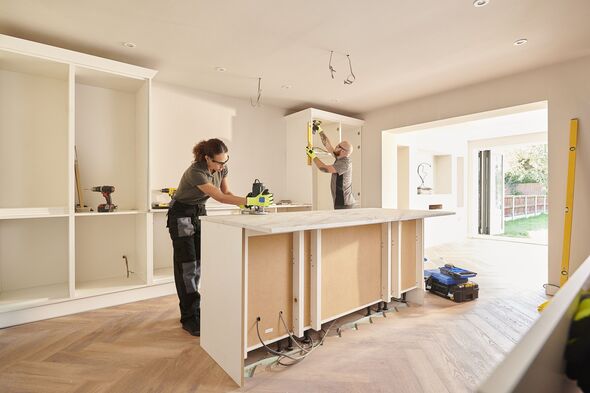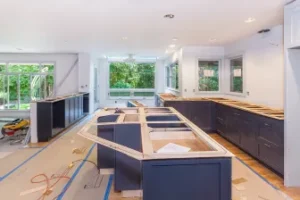Renovating a home on a tight budget can be both exciting and stressful. Despite the temptation to transform a space without going over budget, many homeowners end up overspending or encountering unexpected, costly complications. Avoiding the mistakes even the most well-intentioned DIYers make is the key to a successful budget renovation. By learning from these common mistakes, you can save money, time, and energy while achieving the desired result.
Lack of Upfront Planning:
Many homeowners jump into a renovation without a clear strategy. This excitement sometimes leads to costly mid-project adjustments, forgotten tasks, and poor time management. Please take the time to plan your approach before you begin using the tools thoughtfully. Create a realistic timeline, research the materials and costs, and consider how each room will connect to the others. A successful plan acts like a map, keeping you on track and helping you stay within budget when it’s time to renovate.
Doing It All Yourself:
While it’s true that you can save money by doing some things yourself, doing everything yourself without expert help usually doesn’t work. Most homeowners lack the skills or knowledge to carry out electrical repairs, plumbing, or structural improvements. Mistakes in these areas can be damaging and costly. Evaluate your choices honestly and allocate funds for professional assistance when necessary. Doing complex tasks correctly the first time will save you money in the long run.
Ignoring Unseen Problems:
When doing budget-friendly renovations, you often fix only superficial problems and forget to address more profound issues. Even if a fresh coat of paint looks wonderful, it doesn’t fix electrical faults, plumbing leaks, or structural damage behind the walls. These invisible problems don’t simply disappear because you can’t see them. They can be more expensive to repair later. Before you begin renovating, have a professional inspect your home’s major systems to identify any problems that need immediate repair.
Choosing Cheap Materials:
It’s tempting to choose the most affordable materials when finances are tight. However, truly cheap solutions often break quickly, look awful, and may need replacing sooner than you think. The lowest price may seem like a money-saver, but it will cost you more in the long run. Look for materials that offer the best value, not the cheapest. Mid-range products typically last longer, look better, and only cost a little more initially.
Forgetting to Apply for a Permit:
Many homeowners skip the permitting process to save time and money, but this choice can cause major problems later. Working on your home without a permit can lower its resale value, cause insurance issues, and may require you to remeasure it to meet building codes. Contact your local building department to find out if your project requires a permit. While permits cost more initially, they offer legal protection and ensure safe construction.
Don’t Get Multiple Quotes:
Many budget-conscious homeowners make the mistake of simply accepting the first quote. Unless you compare quotes from different contractors for the same job, you can’t be certain you’re getting the best deal. Get at least three quotes from reputable contractors, and make sure they all quote the same amount. The process takes time, but it can save you a lot of money.
Ignoring Small Costs:
When people renovate their homes on a budget, they often focus only on the big costs, like new appliances and flooring. They don’t consider the small expenses that can quickly add up. When you add up all the costs—hardware, finishes, paint, tools, delivery, and cleaning supplies—they may not seem like much, but they add up quickly. Please create a list of all the items you need, including the smallest ones. Add at least 20% to your budget to cover extra costs and unexpected expenses.
Compromising on Functionality:
Renovating on a budget doesn’t have to be unpleasant or lead to poor results. By avoiding these common mistakes, you can create a beautiful and functional room without overspending or sacrificing quality. Remember: a successful renovation requires patience, planning, and realistic expectations. Don’t rush; take the time to learn, ask questions, and do your research. The extra effort you make today will pay off in the future.
FAQs:
1. How much should I set aside for contingencies?
Add 15-20% to your total renovation budget to cover unexpected expenses. This buffer helps cover potential costs, such as hidden damage, price increases, or adjustments you decide to make during the project.
2. When should I hire an expert instead of doing it myself?
If you need structural improvements, electrical work, or plumbing work, hire a professional. If you have the time and resources, you can often paint the house yourself, install basic tiles, and renovate the exterior.
3. How do I know if a contractor’s quote is reasonable?
Request at least three quotes from licensed contractors and search online for average prices in your area. Be wary of quotes that are too high or too low, as either can lead to problems.
4. What permits do I need for my renovation?
The specific requirements for obtaining permits depend on your area and the type of project you’re undertaking. To find out which permits you need for your specific renovation plans, you can contact your local building department or visit their website.




